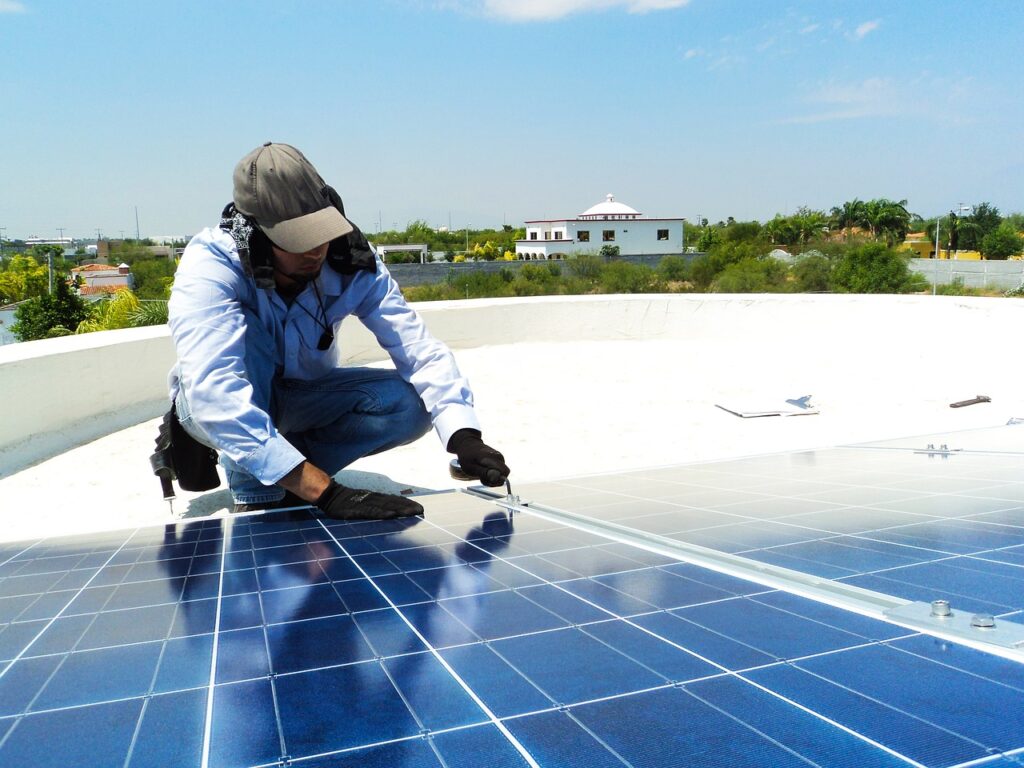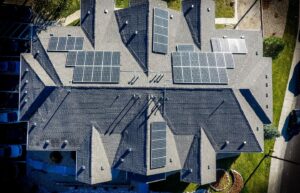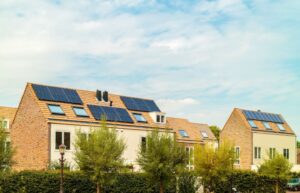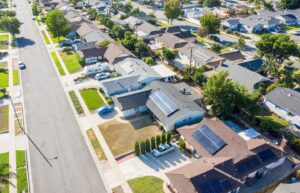Are you curious about the longevity of solar panels and how long they can serve as a reliable source of clean energy? Knowing the lifespan of solar panels is essential for making informed decisions about your solar investment.
Generally, solar panels have remarkable longevity, boasting an average lifespan of approximately 25 to 30 years. It’s worth noting that while the efficiency of solar panels may experience a slight decrease over time, they continue to produce significant photovoltaic (PV) energy throughout their extended lifespan.
If you’re eager to delve deeper into solar panel lifespan and understand how they can benefit your energy needs, read on for the ultimate guide. For expert insights and solutions tailored to your specific solar journey, don’t hesitate to contact Solar by Peak to Peak. Discover the power of solar today!
Solar Panel Installation Process

ALT TAG: How long do solar panels last? by Solar by Peak to Peak
To ensure the longevity and optimal performance of PV panels, proper installation is crucial. The tiered rate of the panels can also affect their overall performance. Hiring a professional PV installer who follows industry best practices can make all the difference in maximizing the lifespan of your solar panel system.
Professional Installation for Longevity
Professional PV installers have the knowledge, experience, and equipment necessary to carry out a successful PV installation that will stand the test of time. They understand how to position the PV panels correctly for maximum sunlight exposure and efficiency.
By entrusting your PV solar panel installation to professionals in Golden, Colorado, you can rest assured that they will handle everything from start to finish. From assessing your property’s suitability for PV solar energy systems to obtaining necessary permits and completing electrical work, they will take care of every aspect of the PV installation process.
Industry Best Practices
Following industry best practices during PV solar panel installation is essential for avoiding potential issues down the line. By adhering to these guidelines, installers can ensure that your system functions optimally for years to come.
Here are some key points that professional installers consider:
- Roof Assessment: Before installing solar panels, professionals assess your roof’s condition and structural integrity. This evaluation helps determine if any repairs or modifications are needed before proceeding with installation.
- Proper Mounting: Installers use high-quality mounting systems designed specifically for solar panels. These mounts securely attach the panels to your roof while minimizing any potential damage or leaks.
- Wiring and Electrical Work: Professionals handle all wiring and electrical connections with precision and expertise. They ensure that all components are properly grounded and connected according to local electrical codes.
- Placement of the inverter: The inverter transforms the solar panels’ DC power into usable AC power for your home or business, making it a crucial component of a solar energy system. Professional installers strategically place the inverter to minimize energy loss and maximize efficiency.
- System Testing: Once the installation is complete, professional installers thoroughly test the entire system to ensure it is functioning correctly. This testing includes checking for any potential issues or malfunctions that may need attention.
Benefits of a Professional Installation
Opting for professional solar panel installation offers several advantages:
- Quality Assurance: Professional installers have expertise in handling all aspects of installation, ensuring that every step is carried out correctly.
- Warranty Coverage: Many solar panel manufacturers require professional installation to maintain warranty coverage. By choosing professionals, you can avoid any potential issues with warranty claims.
- Time and Cost Savings: Professionals complete installations efficiently, saving you time and effort. They also have access to industry discounts and incentives, helping you save on upfront costs.
Factors Affecting the Lifespan of Solar Panels
Environmental Conditions
Various environmental factors can affect the lifespan of solar panels. One crucial factor is the temperature to which the panels are exposed. Extreme heat or cold can impact their performance and longevity. In areas with high temperatures, such as Golden, Colorado, where summers can get scorching hot, solar panels may experience accelerated wear and tear.
Sunlight exposure is another critical aspect affecting panel lifespan. Solar panels thrive when they receive direct sunlight for optimal energy production. However, excessive exposure to UV rays over an extended period may cause degradation and reduce their overall lifespan. It’s important to consider these environmental conditions when installing solar panels and take appropriate measures to protect them.
Quality of Materials
The quality of materials used in manufacturing solar panels plays a significant role in determining their lifespan. High-quality panels are designed to withstand harsh weather conditions and maintain their efficiency over time. These panels often come with advanced protective coatings that shield them from environmental elements.
On the other hand, low-quality or poorly manufactured solar panels may deteriorate more quickly, resulting in a shortened lifespan. It’s essential to choose reputable manufacturers known for using top-grade materials when investing in solar panel systems.
Regular Maintenance and Upkeep
Regular maintenance and upkeep are crucial for extending the lifespan of solar panels. Keeping the panels clean and free from debris allows them to function optimally by maximizing sunlight absorption. This includes removing any dirt, leaves, or bird droppings that may accumulate on the surface.
Scheduling periodic inspections by professionals ensures early detection of any potential issues or damages that could affect panel performance. Prompt repairs or replacements can significantly prolong the lifespan of your solar panel system.
Proper maintenance also involves monitoring the system’s electrical components and ensuring they are functioning correctly. This helps prevent any malfunctions that could lead to reduced efficiency or even complete failure of the system.
Understanding Solar Panel Warranties and Guarantees
When investing in solar panels, it’s crucial to consider their longevity. After all, you want to ensure that your investment will last for a significant period of time. One common question that arises is: how long do solar panels last? While the lifespan of solar panels can vary depending on various factors, manufacturers typically provide warranties that cover defects and performance guarantees.
Manufacturers Provide Warranties and Guarantees
Solar panel manufacturers offer warranties to instill confidence in their products. These warranties typically cover any defects or malfunctions that may occur during the specified warranty period. Some manufacturers also provide performance guarantees, ensuring that the panels will maintain a certain level of efficiency throughout their lifespan.
Varying Warranty Periods for Different Components
Solar panels consist of several components, such as photovoltaic cells, glass covers, frames, and wiring. Each component may have its own warranty period provided by the manufacturer. For example, while the photovoltaic cells might come with a 25-year warranty, other components like frames or wiring might have shorter warranty periods ranging from 5 to 10 years.
It’s essential to understand these varying warranty periods before making a purchase decision. Take into account not only the overall panel warranty but also the warranties for individual components. This knowledge will help you assess how well-protected your investment is against potential issues.
Understanding Terms and Conditions
Before finalizing your purchase, it’s crucial to thoroughly read and understand the terms and conditions of the warranties provided by different manufacturers. Pay attention to important details such as what exactly is covered under the warranty (e.g., defects in materials or workmanship), how long each component is covered for, and any specific conditions or requirements for maintaining the validity of the warranty.
By familiarizing yourself with these terms and conditions beforehand, you can decide which manufacturer offers the best coverage for your solar panels.
Benefits of Comprehensive Warranties
Opting for solar panels with comprehensive warranties can provide several benefits, including:
- Peace of mind: A comprehensive warranty protects you against any potential defects or performance issues during the specified period.
- Long-term cost savings: If any component fails within the warranty period, you won’t have to bear the financial burden of replacing or repairing it.
- Increased resale value: Solar panels with longer warranties may be more appealing to potential buyers in the future, increasing the overall value of your property.
However, it’s important to note that even with a warranty in place, regular maintenance and care are still necessary to ensure your solar panels’ optimal performance and longevity.
Routine Maintenance and Servicing for Longevity
Regular maintenance and servicing are crucial to ensuring the longevity of your solar panels. By conducting routine inspections and taking the necessary steps, you can identify any issues or damage early on, allowing for timely repairs or replacements.
Regular Inspections for Early Detection
Performing regular inspections is essential to catching any problems before they worsen. Inspect your solar panels at least once a year or more frequently if you live in an area with extreme weather conditions like Golden, Colorado. Look out for any signs of physical damage, such as cracks or discoloration in the panels.
Cleaning Debris and Ensuring Proper Ventilation
Keeping your solar panels clean and free from debris is vital to maintaining their efficiency. Regularly remove leaves, dirt, bird droppings, and other debris that may accumulate on the surface of the panels. This can be done using a soft brush or a hose with low-pressure water.
Proper ventilation is also important to prevent overheating of the panels. Make sure there is enough space around them for air circulation. Trim any nearby trees or branches that may cast shadows on the panels and obstruct sunlight.
Checking Electrical Connections
To ensure optimal functioning over time, it’s crucial to check the electrical connections of your solar panel system. Loose or damaged connections can lead to reduced performance or even complete system failure. It’s recommended to have a professional electrician inspect these connections regularly.
Spare Time for Servicing
While solar panel systems are designed to be low-maintenance, occasional servicing by professionals can help extend their lifespan. Schedule regular service appointments with reputable companies specializing in solar panel maintenance checks in your area.
During these service visits, experts will thoroughly assess your system’s performance, clean the panels professionally if needed, and conduct detailed inspections to identify potential issues affecting their lifespan.
Manufacturers’ Guidelines and Recommendations
Every manufacturer provides specific guidelines and recommendations for the maintenance and servicing of their solar panels. It’s essential to familiarize yourself with these instructions and follow them diligently. Adhering to the manufacturer’s guidelines ensures that you are taking the necessary steps to maximize the lifespan of your solar panel system.
Regular maintenance not only helps prolong the life of your solar panels but also protects your investment. By keeping up with routine inspections, cleaning, and professional servicing, you can ensure that your panels continue to generate clean energy efficiently for many years to come.
Cleaning and Upkeep for Optimal Performance
Regular cleaning and upkeep are essential to ensure that your solar panels continue to operate at their highest efficiency and produce optimal energy output. Neglecting these maintenance tasks can decrease performance and shorten the lifespan of your solar panels.
Regular Cleaning Removes Dirt, Dust, and Debris that can Reduce Panel Efficiency
Over time, dirt, dust, bird droppings, leaves, and other debris can accumulate on the surface of your solar panels. This buildup creates a barrier between the sun’s rays and the photovoltaic cells within the panels. As a result, less sunlight is absorbed and converted into electricity.
Regularly cleaning your solar panels helps remove this layer of grime and ensures maximum exposure to sunlight. It is recommended to clean them at least once or twice a year or more frequently if you live in an area with high levels of air pollution or dust.
Using Non-Abrasive Cleaners Helps Maintain the Integrity of Solar Panels
When cleaning your solar panels, it is crucial to use non-abrasive cleaners to avoid damaging the delicate surface. Abrasive materials or harsh chemicals can scratch or degrade the protective coating on the panels, leading to reduced efficiency over time.
Instead, opt for mild, soapy water or specific solar panel cleaning solutions recommended by manufacturers. Gently scrubbing with a soft sponge or cloth should be sufficient to remove any stubborn dirt without causing harm.
Keeping Surrounding Vegetation Trimmed Minimizes Shading Effects on Panel Output
Shade from trees or nearby structures can significantly impact the performance of your solar panels. When shadows fall on even a small portion of a panel’s surface area during peak sunlight hours, it can cause a drop in energy production for that particular panel as well as affect neighboring ones connected in series.
To mitigate shading effects, regularly trim back any overhanging branches or foliage that cast shadows onto your solar array. This ensures that your panels receive maximum sunlight exposure throughout the day, optimizing their energy production.
In addition to cleaning and shading control, it is also essential to monitor the overall performance of your solar panel system. Regularly check for any signs of damage or degradation, such as cracked glass, loose connections, or reduced energy output. If you notice any issues, it’s advisable to contact a qualified technician for further inspection and necessary repairs.
By investing time and effort into properly cleaning and maintaining your solar panels, you can maximize their efficiency, extend their lifespan, and reap the full benefits of this sustainable energy technology. Remember to follow manufacturer guidelines for maintenance and consult professionals when needed to ensure your solar panel system’s long-term quality and performance.
Tips for Extending Solar Panel Lifespan
Investing in high-quality solar panels increases their durability and longevity. You want to ensure you get the best bang for your buck. Opting for high-quality panels may require a larger upfront investment, but it pays off in the long run.
Consistently Monitor Energy Production and Performance
You can quickly identify any issues by monitoring your solar panel’s energy output. Regularly monitoring the performance ensures that your panels are operating at their optimal efficiency.
Invest in Additional Protection
Protecting against extreme weather events safeguards the integrity of solar panels. Solar panels are designed to withstand various weather conditions, but severe storms or hailstorms can still cause damage. Taking proactive measures, such as installing protective covers or reinforcing mounting systems, can help safeguard your panels against potential damage.
Consider investing in additional protection measures such as surge protectors or lightning arresters. These devices help safeguard your solar panel system from power surges caused by lightning strikes or other electrical disturbances.
Regular Cleaning and Maintenance Checks
Regular maintenance and cleaning play a vital role in extending the lifespan of your solar panels. Dirty or dusty panels can significantly impact their efficiency and overall performance. Cleaning them regularly with water and a soft brush helps remove debris and ensures maximum sunlight absorption.
Regularly inspecting all components of your solar panel system is crucial for identifying any potential problems early on. Check for loose connections, damaged wiring, or any signs of wear and tear. Addressing these issues promptly can prevent further damage and extend the lifespan of your solar panels.
Incorporate a regular maintenance schedule into your routine to keep your solar panel system in top shape. This includes cleaning the panels, checking for debris accumulation, inspecting the mounting structure, and monitoring energy production. A well-maintained system is more likely to last longer and perform optimally throughout its lifespan.
Avoiding Shading
Avoid shading your solar panel system whenever possible. Shading reduces the amount of sunlight reaching the panels, leading to decreased energy production. Trimming trees or removing obstacles that cast shadows on your solar array helps maximize its effectiveness.
Ensuring Proper Installation
Ensure proper installation by hiring certified professionals experienced in installing solar panel systems. Improper installation can lead to numerous issues down the line, including reduced efficiency and even damage to the system itself. Hiring professionals who specialize in solar installations minimizes these risks and ensures the proper functioning of your system.
How Long Do Solar Panels Last?
You now have a comprehensive understanding of the various factors that influence the lifespan of solar panels, along with insights into how regular maintenance can help extend their longevity. So, what’s the bottom line?
The longevity of solar panels varies based on factors like quality, installation, and maintenance, but on average, you can expect them to perform effectively for approximately 25 to 30 years. It’s worth noting that many manufacturers provide warranties that guarantee power output for even longer durations.
If you’ve been contemplating a transition to solar energy, there’s no better time to take action. With their impressive lifespan and the potential for substantial savings on electricity bills, investing in solar panels is a smart decision for your finances and the environment. Don’t delay—start reaping the benefits of clean energy today!
For personalized guidance and to explore how solar panels can transform your energy landscape, reach out to Solar by Peak to Peak. Our experts are ready to assist you in making the switch to a sustainable and cost-effective energy solution. Contact us now to embark on your solar journey!



